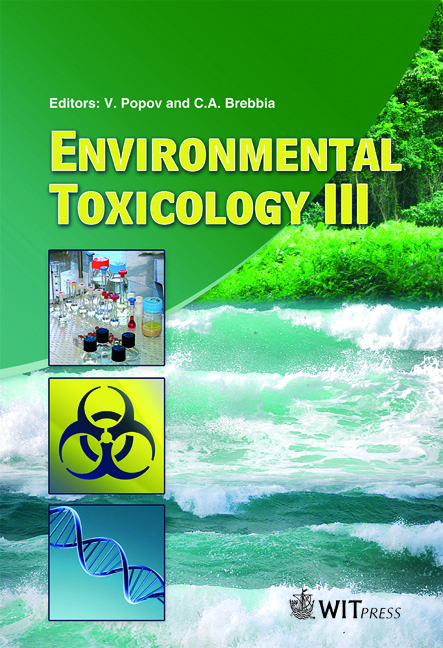Adaptation Of Bacterial Biotests For Monitoring Mycotoxins
Price
Free (open access)
Transaction
Volume
132
Pages
11
Page Range
143 - 153
Published
2010
Size
330 kb
Paper DOI
10.2495/ETOX100141
Copyright
WIT Press
Author(s)
Cs. Krifaton, J. Kukolya, S. Szoboszlay, M. Cserháti, Á. Szűcs & B. Kriszt
Abstract
Mycotoxins are secondary fungal metabolites that have mutagenic, carcinogenic, teratogenic, immunomodulant and cytotoxic effects. Besides expensive chemical analytical methods, biotests can be alternative screening methods for selecting mycotoxin degrading microbes. Our aim was to monitor mycotoxins by bacterial biotests. Aflatoxin-B1 (AFB1), deoxynivalenol, zearalenon, T2-toxin and ochratoxin were analysed by two biotests: Aliivibrio fischeri luminescence assay and SOS-Chromotest using Escherichia coli. The A. fischeri bioluminescence assay is one of the most sensitive bacterial toxicity assays across a wide spectrum of toxicants; however, the effects of mycotoxins have been hardly examined. The inhibition effect of various mycotoxins on A. fischeri was determined in the range of 1–20 μg/ml toxin concentration. The test bacterium proved to be the most sensitive for AFB1. Less but pronounced inhibition of zearalenon was also determined, while other mycotoxins had no measurable toxic effect on A. fischeri. Based on these results we have adopted this method for monitoring microbial AFB1 biodegradation efficiency. The genotoxic effect of mycotoxins was analysed by SOS-Chromotest. The principle of the assay is the SOS response that is induced by DNA-damaging agents. We have examined AFB1 0,078–10 μg/ml concentration. We found that the genotoxic effect of AFB1 is still detectable at 0,078 μg/ml concentration. SOS-Chromotest was successfully used to select microorganisms that have the best AFB1 degrading potential and can degrade AFB1 without genotoxic by-products. The applicability of SOS-Chromotest for screening mycotoxin degrader microbes
Keywords
aflatoxin-B1, zearalenon, ochratoxin, T2-toxin, deoxynivalenol, SOS-Chromotest, genotoxicity, Aliivibrio fischeri, screening, biodegradation





